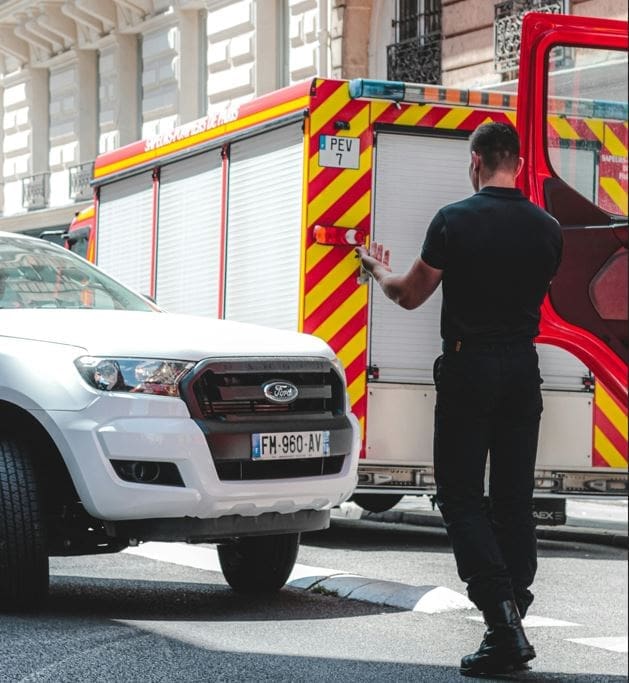
A bill now on the House ready list would dramatically increase fines for people who fail to yield right of way to an emergency vehicle. Photo by Mathias Reding/Pexels
Drivers who don’t move over for emergency vehicles would face stricter penalties under House Bill 329.
The bill passed through the House Public Safety and Homeland Security Committee Tuesday and now moves to the House ready list for a floor vote.
HB 329 addresses the growing concern over the safety of emergency responders by increasing the penalties for drivers that don’t yield the right of way to an emergency vehicle making use of audible or visual signals, or a police vehicle using an audible signal only.
“There have been numerous accidents causing personal injury and even death by inattentive drivers,” said bill sponsor Rep. Jeff Hilovsky, R-Oak Orchard.
“Hopefully, this will help improve awareness and safety and avoid putting our police, fire, ambulance, paramedics, fire police, DelDOT employees, tow truck operators, utility crews and the distressed citizens broken down on our highways in jeopardy.”
Emergency change fines
The fine for a first offense would more than triple the current one, from $150 to $500; a second violation would jump from $300 to $1,000; and third offenses bring a $2,000 fine and a 90-day driver license suspension.
“This change in fines and loss of driving privileges increases the penalty to make this a serious offense,” said Hilovsky.
HB 329 also clarifies that a driver who is unable to safely yield the right of way must slow to at least 20 miles per hour less than the posted speed limit.
“But how do we ensure that this information gets to individuals, especially considering the consequences?” questioned Rep. Kendra Johnson, D-Brandywine Hundred. “I don’t want to hold you accountable for anything, if I have not properly educated you about what the rule is. So for a seasoned driver like myself, how would I learn?”
James Woznicki, Kent County executive director of the Delaware Volunteer Firemen Association, told Johnson there already are education initiatives about the move-over law in place.
”There are commercials on television, there’s some vehicles you’ll see on our roadways in the state of Delaware that advertise the move over law right on their vehicles as decals and placards, the fire police have pamphlets that they put out up and down the state and all the rest areas, the Safety Institute does nationwide education and training online, videos online, radio ads, so there’s an educational piece out there, of course,” Woznicki said.
Hilovsky said too many motorists flout the law, drive inattentively and put others at unacceptable risk.
“This bill makes an appropriate, dramatic statement that I think will get their attention,” he said.
RELATED STORY: Delaware won’t have a presidential primary this year
Mary Anne Edwards with the DE Campaign to End Debtors Prison said the bill does nothing to increase enforcement.
“This just simply won’t work,” she said. “National studies in the United States Department of Justice report: ‘The certainty of being caught is a vastly more powerful deterrent than the punishment.’”
She pointed out that first offenders could potentially pay about $800 once fees are attached.
“It’ll have a devastating financial impact for many, even most, people,” she said. “The U.S. Federal Reserve reports that 40% of Americans can’t afford an unexpected $400 expense.”
Lynne Kielhorn, also with Debtors Prison campaign, reiterated that increasing fines is not appropriate.
“Doing more public service announcements and other ways of informing the public and reminding them that they need to slow down and be safe would be more effective,” Kielhorn said.
The bill passed on a vote of 8 on its merits, meaning the committee members stopped short of endorsing it, but thought it had enough merit to go before the full House.
Share this Post




